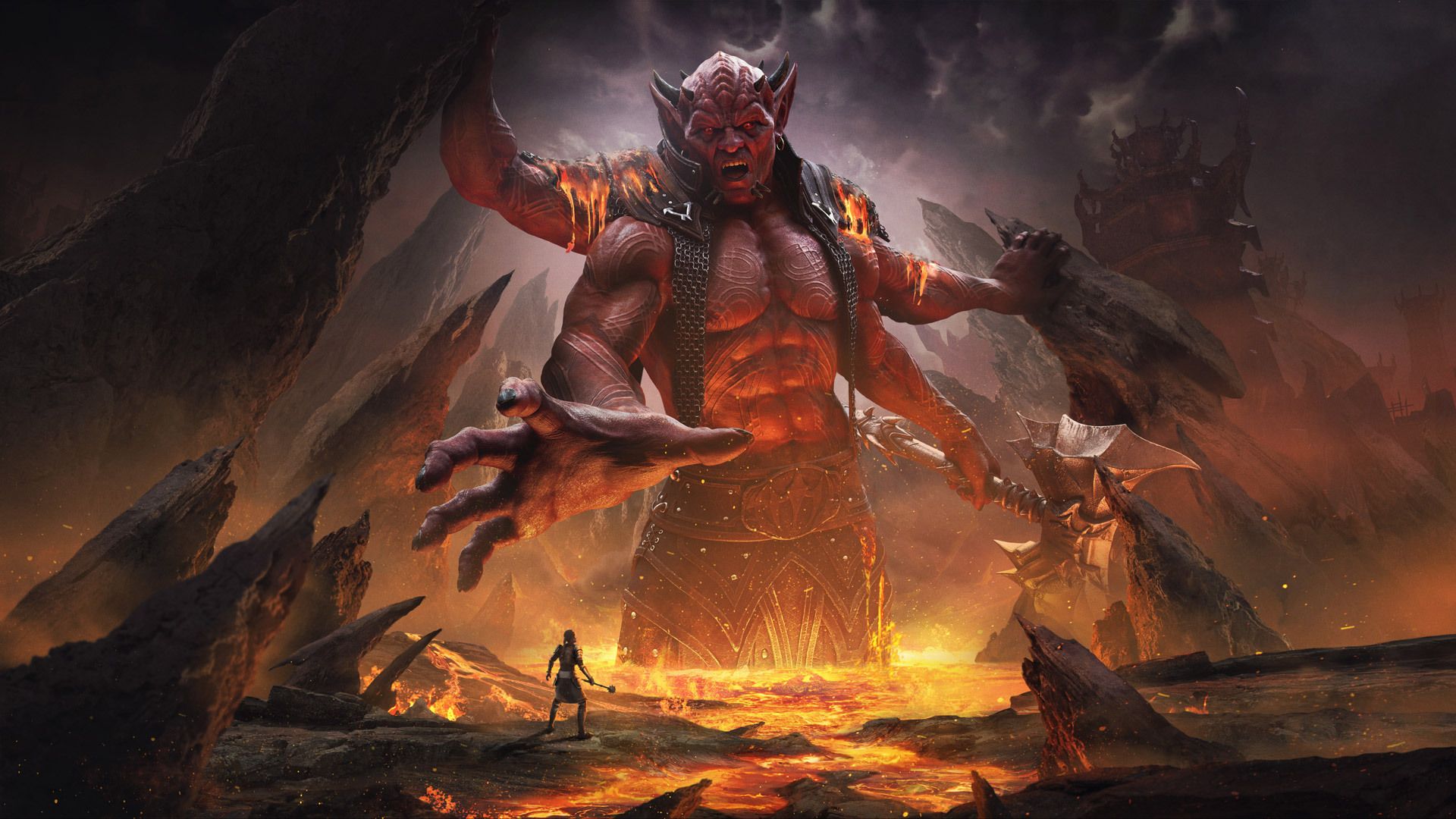ESO devs at ZeniMax reel from Microsoft's 'hollow' layoff emails, with some wondering how a 'carcass of workers' is 'supposed to keep shipping award-winning games'
"I don't care how many times they do it to try and make it seem normal—it's not."

It's with precious little pleasure that I sit here and try to find a new way to say 'the games industry has had a rough couple of years' without cannibalising my own work—if you've been following along, you already know the score. Mass layoffs, studio closures, and (most recently) a whopping 9,000 layoffs at Microsoft, despite CEO Phil Spencer boasting about how strong the company is looking.
The Elder Scrolls Online (ESO) developer ZeniMax formed a part of these layoffs, alongside a cancelled MMO that was apparently so good nobody could put it down: All sacrificed at the altar of growth.
Per an exhaustive interview with Game Developer, the actual process was quick and callous, alleges an anonymous ZeniMax employee: "No Slack, email, nothing is working. We have an off-work Discord, but it's all people freaking out with no real verifiable info." Another describes the feeling as not dissimilar to being "run over by a truck."
It's understandable that developers want to remain anonymous in the wake of layoffs like these, but what I find notable here is that some were happy to be named—including Page Branson, who has very few kind words for the actions of Microsoft writ large, dubbing it a "betrayal of trust of the highest magnitude".
Autumn Mitchell, a member of ZeniMax's union alongside Branson, adds: "It's not okay. It wasn't normal. I don't care how many times they do it to try and make it seem normal—it's not. The way they do it is inhumane. I don't care how much they say that it's dignified or they want to do it in a respectful way—it's not."
Workers with up to 15 years of experience were laid off, quickly shuttered out of Slack channels without so much as a chance to say goodbye: "Making it so that people have to rush to type a goodbye message into Slack to their colleagues that they've been working with on various projects, that have been making your corporation money for 15 years, is disgusting. It's disgusting."
Mitchell, in particular, says if they had a chance to talk to Spencer directly, they'd "get on my knees and beg" him to "please talk to people and ask them what this is like on the ground level before sending out the blast emails that you do … You are too far away to have any idea how—maybe not intentionally—how hollow those emails are."
Keep up to date with the most important stories and the best deals, as picked by the PC Gamer team.
Microsoft has, over the past few years, quickly earned itself an EA-like reputation for being a company that swallows up promising studios and spits them out once it's done chewing. Here's a quick timeline:
- January 2024: After a $68.7 billion acquisition of Blizzard, over 1,900 employees are laid off and Blizzard's survival project is cancelled.
- May 2024: Hi-Fi Rush studio Tango Gameworks and Arkane Austin are shuttered.
- (They started eyeing up more acquisitions after this).
- July 2025: 9,000 more layoffs, and alongside ZeniMax's apparently-quite good MMO game, Perfect Dark and Rare's Everwild were cancelled, and Romero Games was dropped.
I don't know about you, but if I were a game dev and my studio was acquired by Microsoft, I'd meet that news with dread rather than excitement. Whether that'd be more dread than the usual is up for debate.
Branson more-or-less has the same gut feeling, telling Game Developer: "I don't know what [Microsoft] can do at this point to win back trust from the consumers and some of their employees …I continue to think back to Tango Gameworks and Arkane Austin—watching that happen is now the second worst day of my career."
Echoing other industry statements about the sheer, utter waste of institutional knowledge, Branson continues: "We used to have very, very reliable people working on things and they're no longer there. They were integral. I feel like they were numbers on a sheet that got cut, but the real application of what they were doing was integral to making everything run correctly."
Mitchell puts it very well: "This carcass of workers that remains is somehow supposed to keep shipping award-winning games. I don't really know [how that works] … Microsoft just took everything that could have been great about the culture and collaboration and decimated it.
"Morale is terrible. It's grotesque. People are stressed. They're crying. For a lot of us, those were some of our best friends. They're our roommates. In my case it was my partner—my partner and I worked together and he was laid off. And I'm not a unique story."
All this despite the fact that ZeniMax's QA team had recently unionised—something I'd wager gives both Mitchell and Branson confidence to make these sorts of statements with their names attached:
"We just ratified our first contract. It was a real moment of celebration for us, but we only had about two weeks to celebrate it. In that regard, it's hard not to feel like 'damn, we just went through all of that and now a third of us aren't going to see this thing in action.'"
The question of the hour, it seems, is whether Microsoft—or the industry—will learn anything from this constant march towards leaner/agile/flexible/streamlined corporate structures. Or maybe it'll just keep fumbling interviews and suggesting people use AI to soothe the ache. I live in doubt of the former and grim expectation of the latter.
Best MMOs: Most massive
Best strategy games: Number crunching
Best open world games: Unlimited exploration
Best survival games: Live craft love
Best horror games: Fight or flight

Harvey's history with games started when he first begged his parents for a World of Warcraft subscription aged 12, though he's since been cursed with Final Fantasy 14-brain and a huge crush on G'raha Tia. He made his start as a freelancer, writing for websites like Techradar, The Escapist, Dicebreaker, The Gamer, Into the Spine—and of course, PC Gamer. He'll sink his teeth into anything that looks interesting, though he has a soft spot for RPGs, soulslikes, roguelikes, deckbuilders, MMOs, and weird indie titles. He also plays a shelf load of TTRPGs in his offline time. Don't ask him what his favourite system is, he has too many.
You must confirm your public display name before commenting
Please logout and then login again, you will then be prompted to enter your display name.


